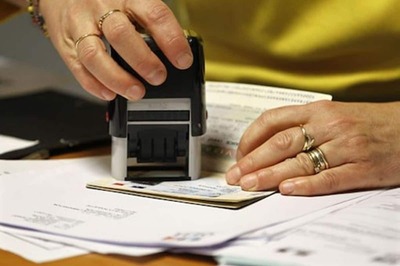
views
Kolkata: IIT Kharagpur has developed an AI-aided (artificial intelligence) method to automate the reading of legal judgment.
The researchers have developed two deep neural models to understand the rhetorical roles of sentences in a legal case.
Presently, AI is widely used in countries like USA, Britain, Japan, Singapore and Australia in legal research, review documents during litigation and conduct due diligence and predicting case outcomes etc.
While explaining its functioning, Professor Saptarshi Ghosh, Department of Computer Science and Engineering, said, “We have selected 50 judgments of the Supreme Court of India and we segmented these judgments through separate labels with the help of senior law students from IIT Kharagpur's Rajiv Gandhi School of Intellectual Property Law.”
He further said, “Then we did an extensive analysis of the assigned labels. Then, we developed a high quality gold standard corpus to train the machine to carry out the task. In previous such attempts, human intervention was required but in this technique - the neural methods automatically learn the features, given sufficient amount of data, and can be used across multiple legal domains.”
“This AI-based method would enable automated understanding of the roles of sentences in a legal case judgment, which is important as it can help in several downstream tasks such as summarisation of legal judgments, legal search, case law analysis, and other functions,” he added.
Paheli Bhattacharya - another research scholar in the team - is using network and text analysis to understand if two legal documents are similar. The other scholars in the team are: Shounak Paul, Dr Kripabandhu Ghosh from the Tata Research Development and Design Centre, Pune, and Dr Adam Wyner from Swansea University, United Kingdom.
Ghosh said, “The whole idea is to build an AI system which can help us in understanding which laws are being violated in a given situation, or if there is merit in taking a particular situation to court, so that legal costs can be minimized.”
The project under 'NYAYA' (a Legal Assistance System for Legal Experts and the Common Man in India) is being supported by the Science and Engineering Research Board (SERB) of the Department of Science and Technology.




















Comments
0 comment